WOW, it seems like it was just new year’s eve and here we are on the 8th already entering week 2! I hope you all had a great week. Mine was still low key as I continue to recuperate. 2 more weeks and I can enter a more normal activity life. YAY!!!!

OUTSIDE MY WINDOW & THE WEATHER OUTSIDE
The SUPER cold snap has broken here and the day time temps are supposed to be in the 60’s with the lows in the 30’s and 40’s, so I’m actually loving the weather right now.
ON THE BREAKFAST PLATE
Maple Brown Sugar Oatmeal with golden raisins
CRAFTS / PROJECTS
Unfortunately, I just didn’t have the drive to get anything accomplished during this recuperation. I’ve just been so slow to get my energy back.
ON MY MIND / THINGS THAT ARE MAKING ME HAPPY
I had a good 1 month check up with the surgeon this past Thursday. He said I’m doing great , but still have 2 more weeks of no lifting or cleaning etc… He did give me the go ahead to start experimenting with veggies and fruits to see what my body can tolerate. He wants me eating more calories because I’m losing too much weight.
The one thing that many people don’t understand is that this will never get bigger or stretch, IT IS WHAT IT IS FOREVER! So, I made up a diagram that makes it easier to see that the change is permanent. It also shows why more chewing and smaller portions are necessary as a few digestive processes are now bypassed.
The biggest issue I recently found out about is that there are tons of medications that I can NEVER take again because of the bypass because they can do serious damage to the “new” smaller stomach. Among them are the medications I take for Fibromyalgia and Systemic Lupus leaving me with only an occasional Tylenol as my only alternative for ANY pain.

FAVORITE PHOTO FROM THE CAMERA
With the deep cold I never left the house except to go to the doctor so never even took a picture last week.
INSPIRATION

AS I LOOK AROUND THE HOUSE / WEEKLY TO DO LIST & HOUSE PROJECTS
- LAUNDRY… quite a few loads this week, towels, bedding and clothing
- LIVING AREAS… plan on doing a deep clean today and tomorrow
- KITCHEN… pretty clean
- STUDIO… is mainly storage these days so nothing going on there
- YARD… nothing
- BLOG… some recipe updating, future post planning
CURRENTLY READING & TELEVISION / DVR
- I’m reading Sophie Moss’ Wind Chime series during my recuperation and am book #3, WIND CHIME SUMMER.
COMEDIES
- BIG BANG THEORY, YOUNG SHELDON
- THE GOOD PLACE, AMERICAN HOUSEWIFE, SPEECHLESS, GREAT NEWS
- BETTER LATE THAN NEVER, LIFE IN PIECES
MILITARY, POLITICAL & CRIME DRAMAS and a couple that qualify as comedies
- NCIS, NCIS NEW ORLEANS and NCIS LA, CRIMINAL MINDS, WISDOM OF THE CROWD, S.W.A.T.
- MADAM SECRETARY, SCANDAL, DESIGNATED SURVIVOR
- BRAVE, VALOR, SEAL TEAM, BLINDSPOT, MACGYVER, SCORPION
- LAW & ORDER SVU, BLUE BLOODS, HAWAII 5-0, ELEMENTARY
- CHICAGO FIRE, CHICAGO PD, CHICAGO MED
DRAMAS
- THE GOOD DOCTOR, THIS IS US
SYFY
- Z NATION, WALKING DEAD, FLASH, SUPERGIRL, DC LEGENDS
- ORVILLE, ONCE UPON A TIME, THE X-FILES
COOKING
- GUY’S GROCERY GAMES, BEAT BOBBY FLAY, BOBBY AND DAMARIS, BAKED IN VERMONT
- KID’S BAKING CHAMPIONSHIP, WORST COOKS IN AMERICA
MENU PLANS FOR THE WEEK
In the beginning I told hubby NOT to get used to my existing diet and the doctor has given me the permission to cook though I still cannot lift so hubby still has to help with the shopping, but is going to have to give up the bachelor foods 😀 While I can only eat a bite or two of what I make, there is NO reason hubby shouldn’t get a few home cooked meals this week. Food will go a A LOT further now, but I am going to have to adapt the recipes A LOT.
I also began Home Chef again for 4 meals this month to ease me back into things. No matter how you look at it proportions are going to be a challenge so now is the time to start rewriting and reworking recipes. I will also plan more C.O.R.N. nights into my menus.
In the meantime I will continue working on combining blogs with older recipes and developing newer recipes that encompass ALL the new requirements. I look forward to previewing those rework recipes in a few months.
|
MONDAY
|
TUESDAY
|
WEDNESDAY
|
THURSDAY
|
FRIDAY
|
SATURDAY
|
SUNDAY
|
|
|
B-FAST
|
3-4 ounces SCRAMBLED EGGS, OATMEAL or WHOLE GRAIN CEREAL and GREEN Tea
|
3-4 ounces SCRAMBLED EGGS, OATMEAL or WHOLE GRAIN CEREAL and GREEN Tea
|
3-4 ounces SCRAMBLED EGGS, OATMEAL or WHOLE GRAIN CEREAL and GREEN Tea
|
3-4 ounces SCRAMBLED EGGS, OATMEAL or WHOLE GRAIN CEREAL and GREEN Tea
|
3-4 ounces SCRAMBLED EGGS, OATMEAL or WHOLE GRAIN CEREAL and GREEN Tea
|
3-4 ounces SCRAMBLED EGGS, OATMEAL or WHOLE GRAIN CEREAL and GREEN Tea
|
3-4 ounces SCRAMBLED EGGS, OATMEAL or WHOLE GRAIN CEREAL and GREEN Tea
|
| 2 times a day |
1 cup LOWFAT MILK or PROTEIN DRINK
|
1 cup LOWFAT MILK or PROTEIN DRINK
|
1 cup LOWFAT MILK or PROTEIN DRINK
|
1 cup LOWFAT MILK or PROTEIN DRINK
|
1 cup LOWFAT MILK or PROTEIN DRINK
|
1 cup LOWFAT MILK or PROTEIN DRINK
|
1 cup LOWFAT MILK or PROTEIN DRINK
|
| 1 time a day |
2-4 ounces tuna salad or yogurt
|
2-4 ounces tuna salad or yogurt
|
2-4 ounces tuna salad or yogurt
|
2-4 ounces tuna salad or yogurt
|
2-4 ounces tuna salad or yogurt |
2-4 ounces tuna salad or yogurt
|
2-4 ounces tuna salad or yogurt
|
| ME 2 times day
DINNER FOR HUBBY |
2 OUNCES PROTEIN – BROILED FISH or CHICKEN and VERY small salad
PINEAPPLE PEANUT BUTTER BABY BACK RIBS |
2 OUNCES PROTEIN – BROILED FISH or CHICKEN and VERY small salad
C.O.R.N. |
2 OUNCES PROTEIN – BROILED FISH or CHICKEN and VERY small salad
SPAGHETTI CASSEROLE |
2 OUNCES PROTEIN – BROILED FISH or CHICKEN and VERY small salad
C.O.R.N. |
2 OUNCES PROTEIN – BROILED FISH or CHICKEN and VERY small salad
COFFEE BREWED POT-ROAST & BUTTERMILK CORNBREAD |
2 OUNCES PROTEIN – BROILED FISH or CHICKEN and VERY small salad
C.O.R.N. |
2 OUNCES PROTEIN – BROILED FISH or CHICKEN and VERY small salad
C.O.R.N. & SALTED CARAMEL CHOCOLATE CHIP COOKIE BARS |
SUCCESSFUL RECIPE LINKS FROM LAST WEEK
- TORTILLA ROLL-UPS
- BEET PICKLED EGGS
- MOZZARELLA CHEESE STICKS
- TERIYAKI SEX ON A STICK
- CRAB PUFFS
- TEX MEX BLT’S
- COWGIRL KISSES
- BANANAS FOSTER BUTTER
- BANANA JAM
- SINFUL ULTIMATE MAC & CHEESE
- TROPICAL YUM!
HEALTH & BEAUTY TIPS
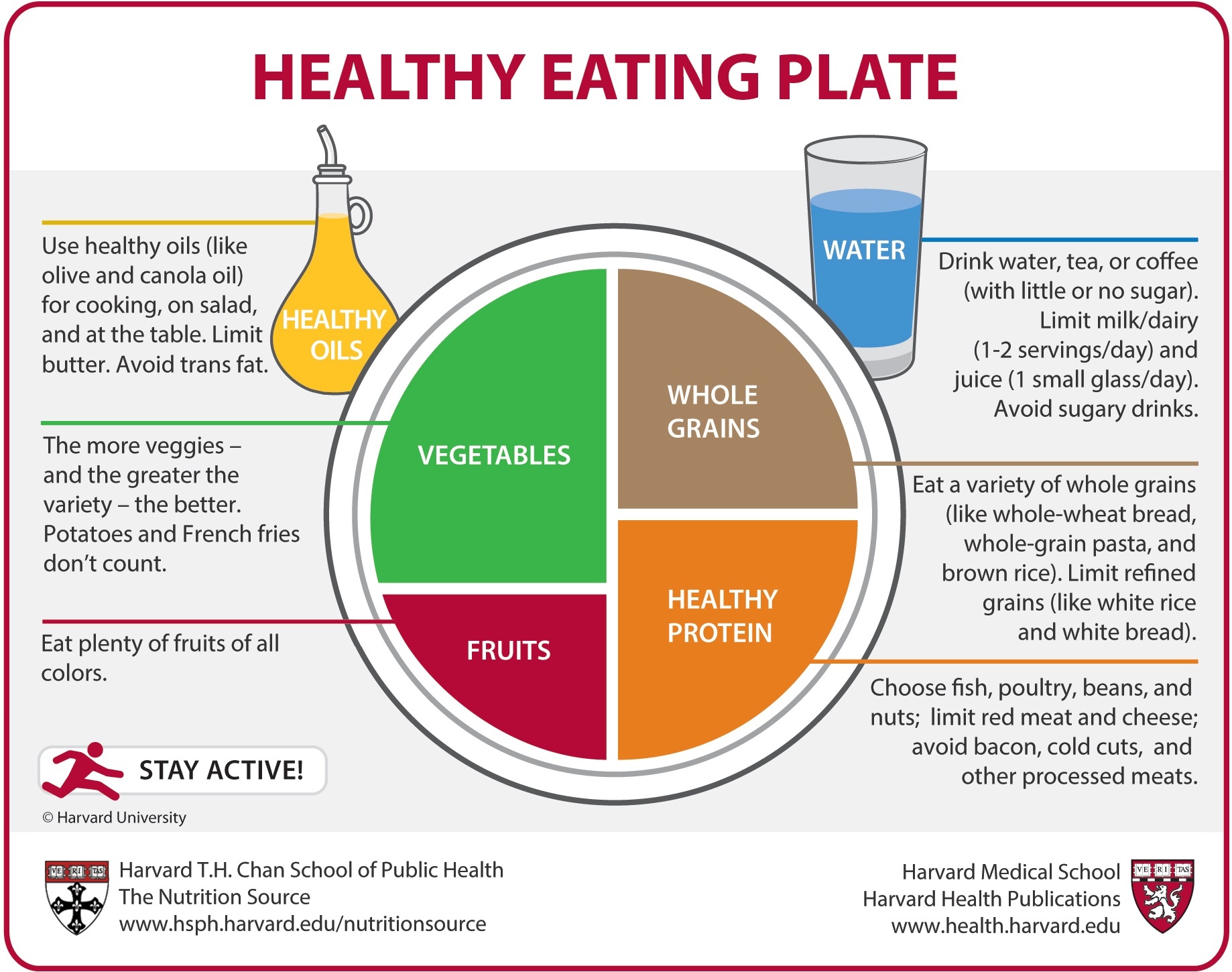
HOMEMAKING/COOKING TIP

Be sure to link up with Sandra at Diary of a Stay at Home Mom for Happy homemaker Monday and with Laura at I’m an Organizing Junkie for Menu Plan Monday.



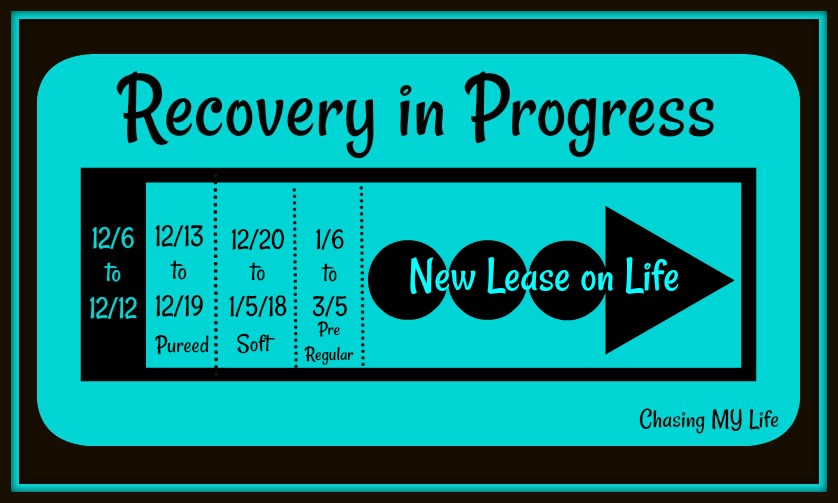


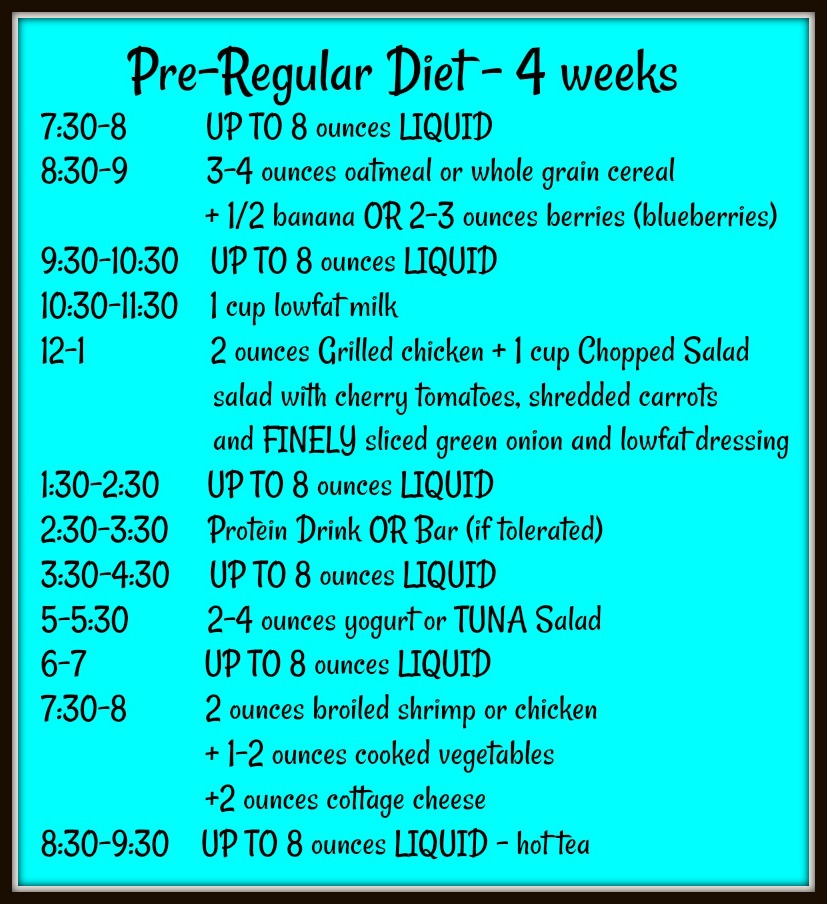



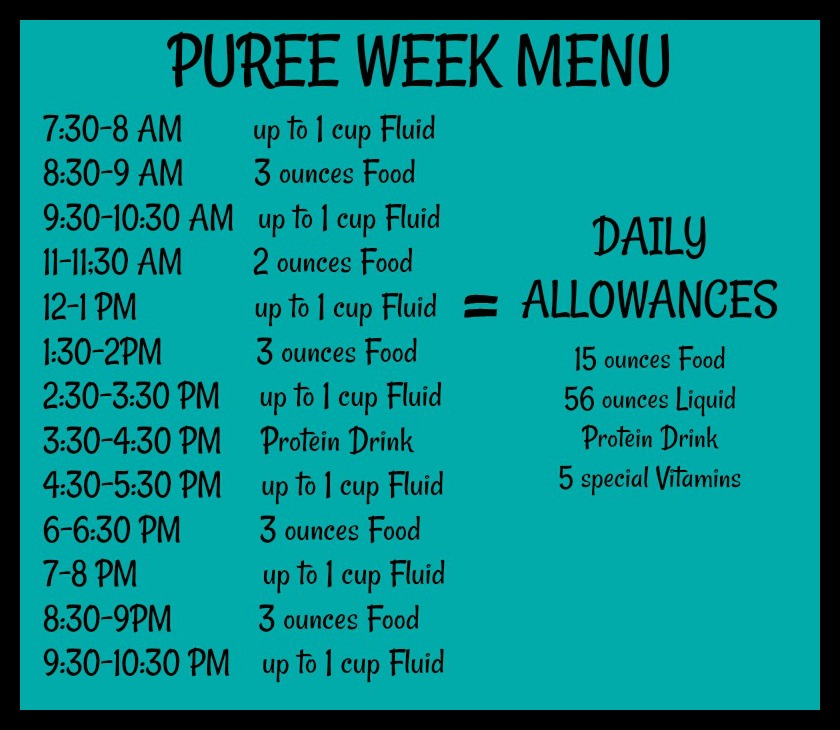
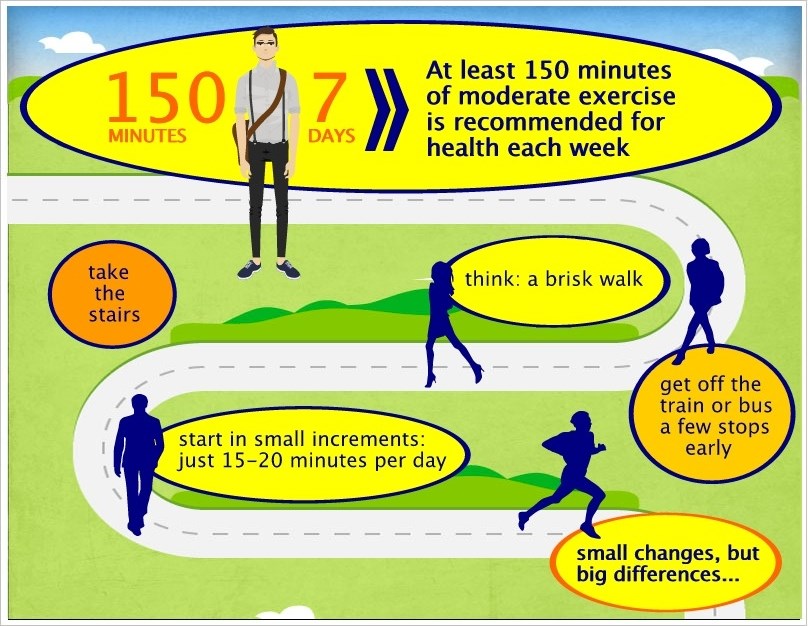
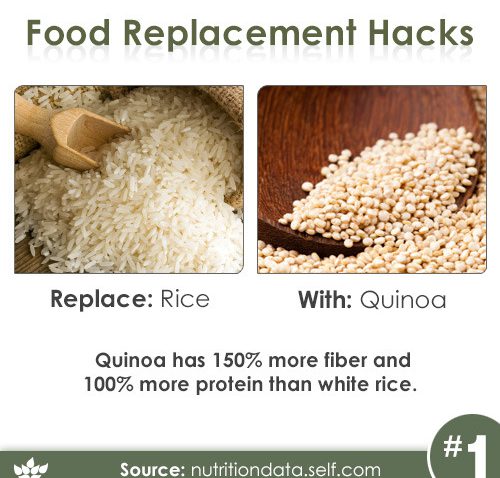






































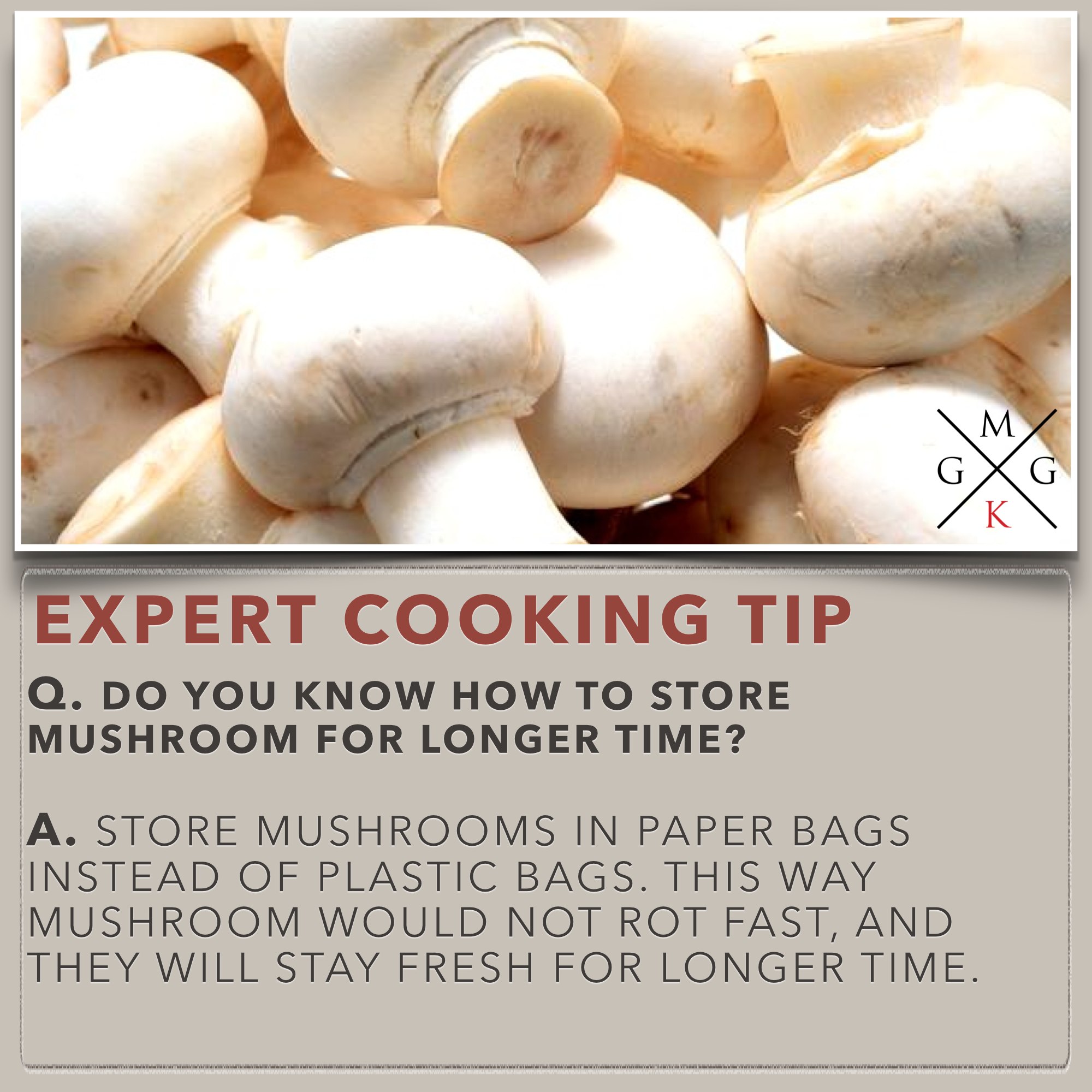










 Six years ago today my life was forever changed when I woke up after my “Cancer” surgery. I will NEVER forget that day or all the support and love that my family and friends provided during my journey. The doctors, nurses and fellow cancer patients I met and have bonded with has been an amazing gift. I will always worry about my cancer coming back but right now I am so thankful and blessed to be here today. Thank you everyone for your love and support!!!
Six years ago today my life was forever changed when I woke up after my “Cancer” surgery. I will NEVER forget that day or all the support and love that my family and friends provided during my journey. The doctors, nurses and fellow cancer patients I met and have bonded with has been an amazing gift. I will always worry about my cancer coming back but right now I am so thankful and blessed to be here today. Thank you everyone for your love and support!!! 2192 days ago they told me they got it all. Well to be honest I was out of it for the first 3 days after a being cut open from stem to stern and a lengthy surgery so I didn’t hear them until 2189 days ago. But, my family knew and was relieved. I am always waiting for the other shoe to fall and the elephant is ALWAYS in the room. They learn new nuances about cancer every day, but no one knows for sure why one person gets cancer and another doesn’t when there is no direct link nor when or if it will come back.
2192 days ago they told me they got it all. Well to be honest I was out of it for the first 3 days after a being cut open from stem to stern and a lengthy surgery so I didn’t hear them until 2189 days ago. But, my family knew and was relieved. I am always waiting for the other shoe to fall and the elephant is ALWAYS in the room. They learn new nuances about cancer every day, but no one knows for sure why one person gets cancer and another doesn’t when there is no direct link nor when or if it will come back.
